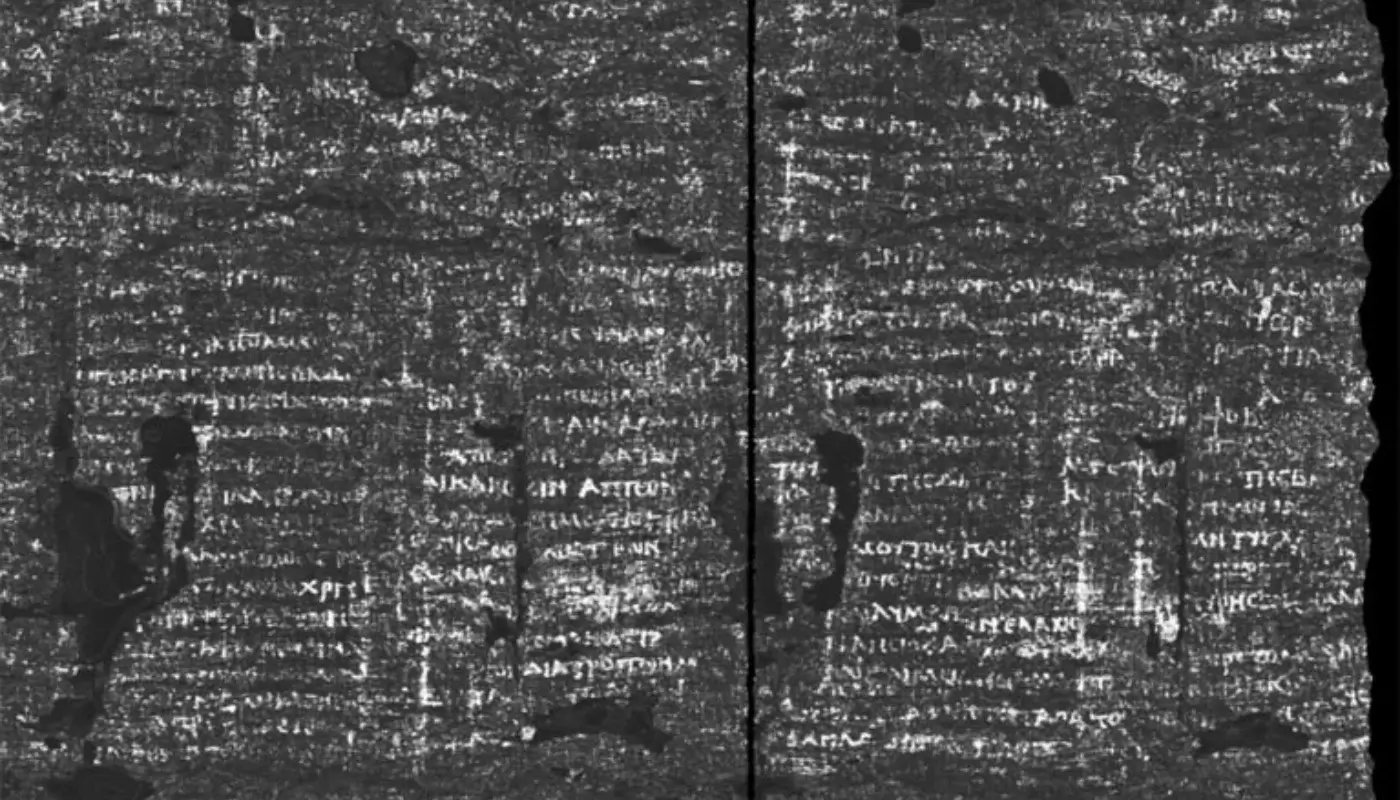Artificial intelligence "read" history under volcanic ash: the author of a valuable manuscript was identified

In the year 79 AD, the eruption of Mount Vesuvius completely buried the ancient city of Herculaneum under layers of ash, destroying countless cultural treasures. Nearly two thousand years later, scientists have opened a new chapter in history — for the first time, the author and title of a burned ancient scroll have been identified.
This discovery became possible thanks to artificial intelligence. It was revealed that the scroll contains a philosophical treatise by the Epicurean philosopher Philodemus titled On Vices and the Opposing Virtues.
The manuscript was found in one of Herculaneum’s villas — likely belonging to a philosophical school or a wealthy individual. Eventually, it was moved to Oxford’s Bodleian Library, where it remained unopened due to its extreme fragility — even the slightest touch could have led to its complete destruction.
Under these conditions, modern technology came to the rescue — artificial intelligence, high-precision X-ray tomography, and 3D modeling techniques. Within the Vesuvius Challenge project, specialists analyzed microscopic traces of carbon ink and were able to “virtually open” the scroll.
The Volume Cartographer software developed by researchers at the University of Kentucky played a crucial role in identifying letters and lines. This tool helped reconstruct each line and enabled accurate interpretation.
It turned out the scroll is Philodemus’s philosophical guide on how to avoid vices and live virtuously. It discusses concepts such as moral purity, moderation, and managing emotions through reason.
According to the researchers, this technological breakthrough may allow access to many more burned manuscripts from the Herculaneum library. Dozens of similar scrolls await — each potentially unveiling forgotten chapters of human history.
Thanks to rapid scientific and technological advancements, researchers today can not only build the future but also uncover the long-hidden secrets of the past. The history buried under the ashes of Vesuvius is beginning to speak — and its words inspire, teach, and remind us. Read “Zamin” on Telegram!
Ctrl
Enter
Found a mistake?
Select the phrase and press Ctrl+Enter 





















